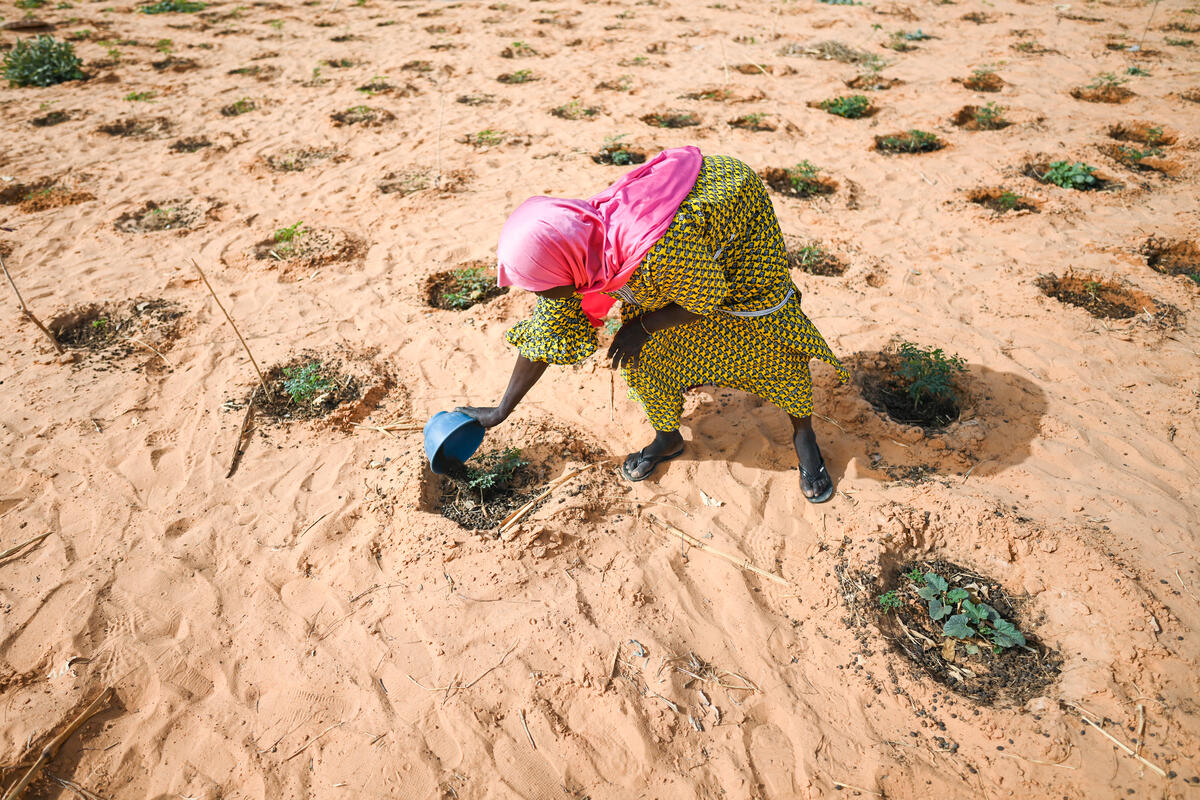Somali refugees return from Ethiopia in first convoy this year
Somali refugees return from Ethiopia in first convoy this year

HARGEISA, Somalia, May 24 (UNHCR) - The UN refugee agency on Thursday started the first voluntary repatriation this year of Somali refugees, many of whom have been in exile for over a decade, from Ethiopia to north-west Somalia.
"This is a sign of hope because it shows the confidence of the people of north-west Somalia," said Simone Wolken, who heads UNHCR Somalia. "Peace and stability have really returned to their home areas. They now look forward to recovery assistance from the international community so as to be truly able to contribute to the rebuilding of their societies."
On Thursday, a UNHCR-led convoy of nine buses and 27 trucks carrying some 1,500 refugees left Rabasso refugee camp in eastern Ethiopia just after 8 a.m. and arrived at the border with Somalia shortly before noon. There, all the returnees were vaccinated against meningitis, following an outbreak in the region last year, in a joint operation involving the local "Somaliland" authorities and staff from the World Heath Organisation (WHO). They then continued their journey to the capital, Hargeisa.
A second UNHCR convoy is expected to leave the nearby Camaboker refugee camp on Saturday with a further 2,000 refugees on board. The UN refugee agency now plans to close Rabasso camp by end-July and the larger Camaboker camp, which currently houses almost 20,000 refugees, by end-September. Rabasso has a population of just under 10,000.
"We are very pleased with the progress of repatriation," said Wolken. "Reintegration, however, remains a real challenge."
In total, the voluntary repatriation programme now underway plans to take around 35,000 refugees home by the end of this year, cutting by more than half the current number of 66,932 Somali refugees seeking refuge in Ethiopia.
Last year, more than 50,000 Somali refugees - mainly from camps in Ethiopia - returned to north-west Somalia, leading to the closure of three of the eight camps for Somali refugees in Ethiopia. The closure of another two camps this year will allow for the consolidation of the remaining refugees into three camps.
Most of the camps were opened in 1988 when thousands of people fled Somalia's civil war. At the height of the crisis, more than 500,000 Somalis sought refuge in eastern Ethiopia, itself an impoverished region.
One refugee woman, boarding the convoy at Rabasso, told UNHCR she was pleased to be going home after such a long time away, but realised life was not going to be easy. "I will try my best to survive and stand on my own two feet. I will make my own tukul and manage somehow," she said, referring to Somali makeshift shelters.
UNHCR is working closely with UNDP Somalia on reintegration projects that cover the building of schools, clinics, sanitation projects and water provision, as well as heath and nutrition initiatives.
A strategy is at present being drawn up to deal with the remaining refugees, many of whom come from the Juba region of southern Somalia, where security conditions are not yet in place for a similar return.
"The next step in finding a durable solution to the Somali refugee crisis will be the voluntary repatriation of those refugees in Djibouti," said Wolken, adding that there were an estimated 15,000 to 20,000 in that country.








